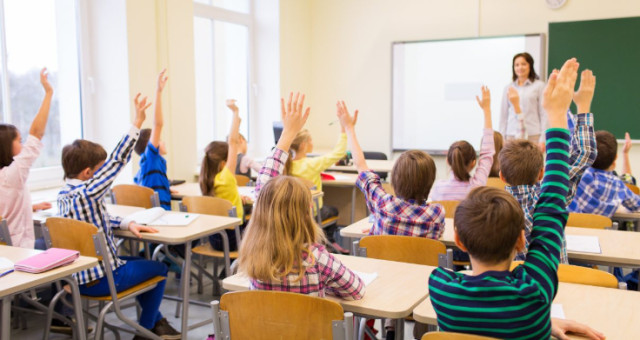Chicago Public Schools (CPS) has almost doubled its spending per student over the past decade, but test scores are dropping.
The district is spending $29,028 per student in the current school year — a 97 per cent increase since 2012, according to a recent analysis by Illinois Policy.
The analysis, using data from the Illinois State Board of Education about the 2022-23 school year, found proficiency in math had dropped by 78 per cent since then, while proficiency in reading has declined by 63 per cent.
It comes as students across the country are struggling to make up for the impact of COVID-19 losses.
Nationally, they have recovered one-third of what they lost in math and one-quarter of the losses in reading, according to the Education Recovery Scorecard, an analysis of state and national test scores by researchers at Harvard and Stanford.
States including Illinois have used money from federal aid package to help students catch up, but experts have warned that momentum could stall when that expires in September.
A recent survey by Pubic Agenda found that the top concern for Chicago residents about the city's public schools is that students are not learning enough, while few think the CPS budget is being spent effectively.
Just over half said they believe CPS needs more funding, while four in 10 said the money it has needs to be spent more wisely.
CPS is "committed to making the best use of all funding to support our students despite a long history of being underfunded," a district spokesperson said in a statement to Newsweek.
"Though state funding has increased in recent years, CPS is still underfunded by more than one billion dollars based on the state's own definition and formula for providing 'adequate' funding for public education."
Elementary students in the district are making strong progress, the spokesperson said, citing preliminary results from the Illinois Assessment of Readiness (IAR) exam administered to third- through eighth-graders in the spring.
The preliminary results found that 31 per cent of students achieved proficiency in English Language Arts this year, up from 26 per cent in 2023 and surpassing pre-pandemic achievement levels.
The results found 19 per cent of students achieved proficiency in math in the 2024 school year, up from 17 per cent last year but still below pre-pandemic levels.
Aria Razfar, a professor at the University of Illinois at Chicago's College of Education, said that although spending might have increased, the pandemic and inflation had had a major impact on educational outcomes.
"These effects have been disproportionate in lower socioeconomic neighborhoods," he said.
The CPS spokesperson added that "like in many parts of the country, Chicago's most at-risk students were most impacted by the pandemic, increasing academic disparities that already existed due to long-standing disinvestment in urban communities and challenging socio-economic conditions."
To tackle the disparities, the district "invested heavily in practices and programs that impact the instructional core and focused on learning acceleration and strengthening grade-level instruction," the spokesperson said.
"We committed to the expansion of a high-quality, culturally relevant curriculum available to every school to ensure that students have access to rigorous and relevant curricular materials."
Camille Blachowicz, a professor at the National College of Education of National Louis University and co-director of The Reading Leadership Institute, said students' progress had been hampered by a growing number of teachers leaving the profession. Schools need to be staffed with educators who can meet the diverse needs of students," Blachowicz said.




















